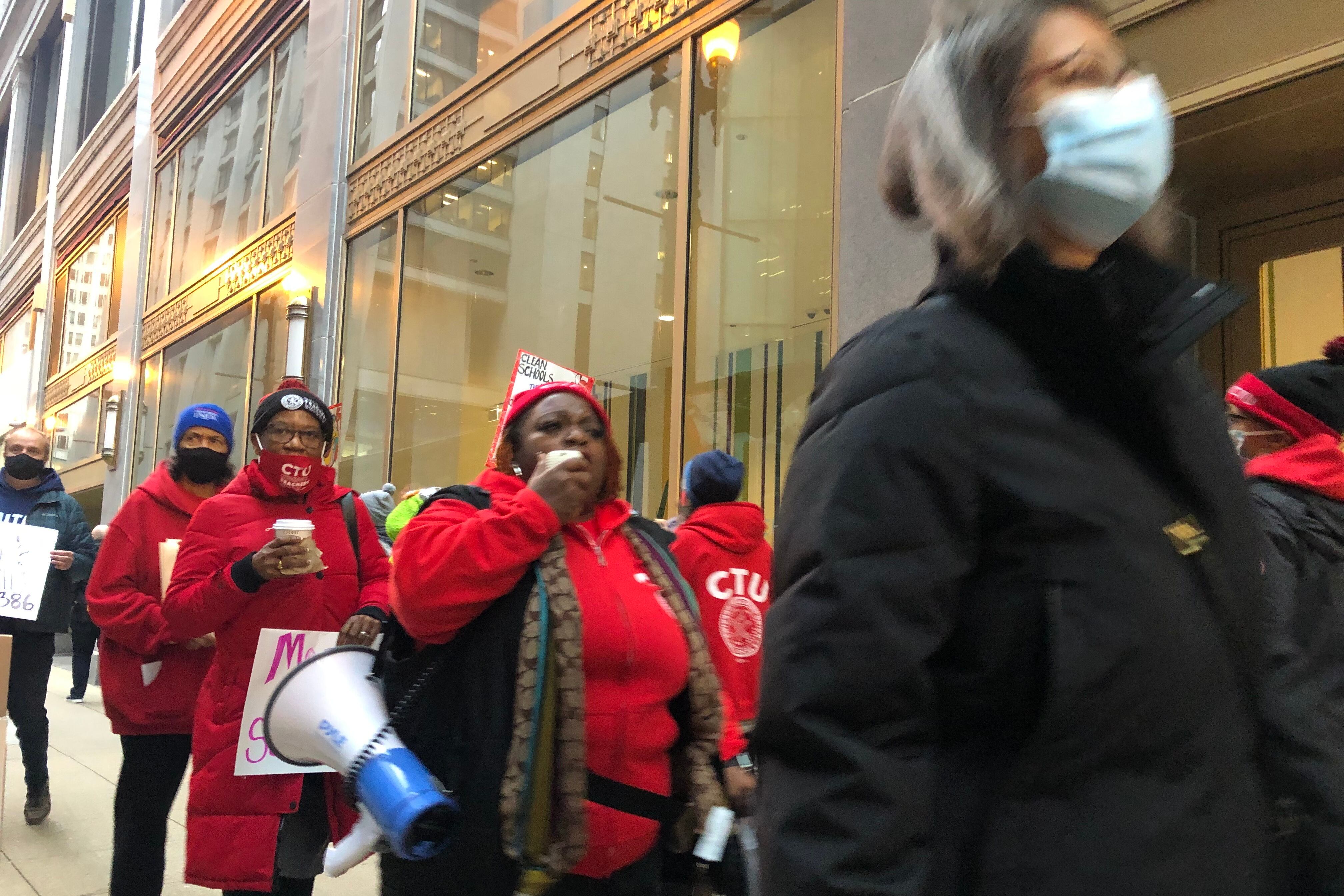The Illinois Educational Labor Relations Board has rejected a bid from the Chicago Teachers Union to temporarily block the lifting of Chicago Public Schools’ mask mandate earlier this week.
The state labor board voted 3-2 on Wednesday to deny the union’s preliminary injunction request that, if granted, would have sent the case to a circuit court judge.
The labor board’s vote increases the likelihood that the district’s mask-optional policy will remain in place for the remainder of the school year.
“We are pleased that we can retain our authority to uphold this policy based on health data which currently lists Chicago in the low-risk category, as defined by the Centers for Disease Control and Prevention and a Districtwide positivity rate of 0.085 percent,” the district said in response to the board’s vote. “We will continue to engage with the Chicago Teachers Union, our parents, families and our community on health and safety issues.”
On June 8, an administrative judge is scheduled to consider the union’s unfair labor practice complaint that the district violated the state’s labor relations act when it lifted the mask mandate. However, the state labor board is considering moving that hearing to an earlier date.
Last week, the district announced it would end its mask requirement for students and staff in schools starting March 14, aligning itself with the Centers for Disease and Control and Prevention’s updated guidance on masking in schools last month. That guidance said masks should be required when rates of new COVID cases and hospitalizations are high in a community.
The Chicago Teachers Union argues the district violated the COVID safety agreement the two sides agreed to after teachers voted to walk out over safety concerns amid the rise in omicron cases. That safety agreement requires masks through Aug. 26, 2022.
The move by the district prompted some confusion, since it came after the Chicago Board of Education reaffirmed its commitment to masking and other COVID mitigation strategies.
However, some parents and union leaders raised concerns over the mask mandate, especially with low vaccination rates on schools on the South and West Sides.
Labor board member Steve Grossman, who voted in the union CTU’s favor, called it a “challenging case” noting the “pandemic, and its effect on the workplace” remained.
The evidence appeared “overwhelming, and virtually undisputed that the Board of Education may have violated” the Educational Labor Relations Act by “failing to bargain in good faith when it ended the mask mandate,” Grossman said.
Following the vote, union attorney Robert Bloch called the decision “unfortunate.”
“It was a crystal clear violation of the labor act,” Bloch said of the district’s decision to lift the mask mandate. “To me, it reflected reticence to do what the labor act requires just because there’s other litigation pending somewhere else in the state relating to this issue.”
In a Wednesday morning statement after the labor board’s vote, the union said it would “continue to stand up for maximum safety in Chicago’s public schools and communities.”
“Despite disregard for the collective bargaining process from Mayor Lightfoot and Chicago Public Schools, our rank-and-file members remain committed to serving students and families safely, and fighting for essential pandemic safety mitigations around vaccinations, contact tracing and COVID-19 testing,” the union said.
Mauricio Peña is a reporter for Chalkbeat Chicago, covering K-12 schools. Contact Mauricio at mpena@chalkbeat.org.







